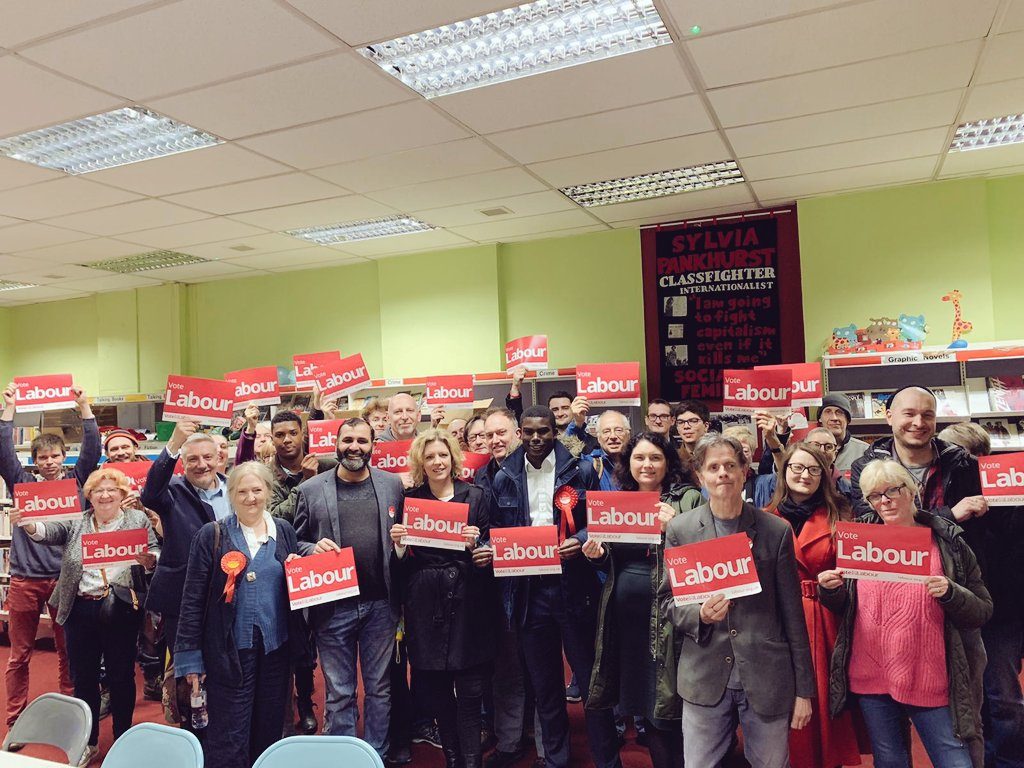Yesterday, I applied to be one of Labour’s candidates for election as an MEP in London.
In London, we need to remain aware of London’s vote to Remain in the EU and the criticality of getting the citizenship terms in the withdrawal agreement right to meet the needs of resident EU citizens and their families. I support Labour’s policy of Remaining if the departure terms are inadequate.
I voted Remain, and have since then argued that Leaver’s should negotiate the terms of exit they think are right and then ask us again if that is what we meant. I believe that Remaining in the EU is better for the people of this country than leaving on May’s terms (or on no terms). I have argued elsewhere in this blog that leaving the EU is either Catastrophic or Pointless. I oppose austerity, racism and climate change. I am a socialist and I voted for Jeremy Corbyn as Leader in 2015 and 2016, and Dianne Abbot in 2010.
I am aware that under Labour’s rules, I am unlikely to get a place on the slate that would lead to me being elected, but I am passionate in my desire to make the case for Labour in this election. Should I be elected, I would hope to be part of a Labour Group that argues against austerity and look to work particularly with the SPD to move Labour’s allies in Europe towards an economy that work “for the many and not the few”.

Our manifesto needs to address the short-term issues of whether we quit the EU or Remain, racism & immigration policy and also the longer-term issues of investment, austerity and climate change.
My professional and trade union experience are a great basis for being an MEP, which is one of the most demanding public offices that Labour seeks election to. My IT industry knowledge is applicable to many areas of EU competence as society seeks to build a democratic regulatory environment to live with the datenkraken.
From 2008 to 2009, I served on NESSI, the EU’s investment incubator for the EU’s R&D grants for internet and computing. (If elected and should we remain, I would hope to help business, education institutes and local authorities improve their bidding capability for this money.) I became one of the authors of the EU’s software industry strategy. This public service reminded me of the good that public policy can do.
I am currently a Branch President in the GMB. The bulk of my work is personal case work and acting as an accompanying rep. I am a trained workplace rep and am experienced in negotiating and have knowledge of employment law. This also requires high levels of empathy and the ability to listen. In the ’80s, I was part of a leadership of work place branch I organised strike action as part of national pay campaigns and other solidarity action with the Civil Service trade unionists derecognised at GCHQ and with the Miners.
My working time in the Civil Service taught me about how to manage and participate in the policy to execution cycle, a critical skill in public policy and service delivery.
I have an Economics degree and am a member of the Royal Economics Society.
I have lived and/or worked in London nearly all my life. I have been a member of five London CLPs over that time, both North and South of the River and in both inner and outer London. I have been a member and activist in four Unions (CPSA, SCPS, APEX & GMB), and remain an active Trade Unionist. All of this has allowed me to meet and learn from the diverse populations across London.
I am just an ordinary working person, I have worked all my life and since 1986 in the private sector, I have known the fear of unemployment and been unemployed. I have experienced the struggle to get my kids well educated and into secure work; I have been a lifelong user of the NHS.
I can represent ordinary Londoners because I am one.
ooOOOoo
Short Link: https://wp.me/p9J8FV-1MF …






